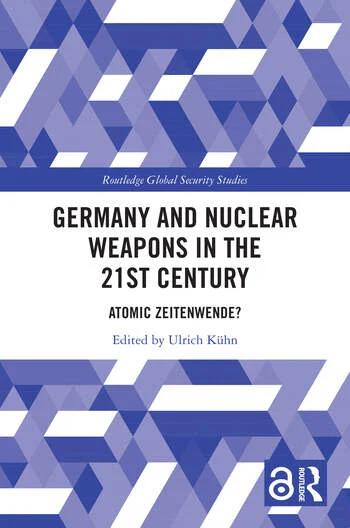Germany and Nuclear Weapons in the 21st Century
A comprehensive look at Germany’s nuclear weapons policies in the twenty-first century.

A comprehensive look at Germany’s nuclear weapons policies in the twenty-first century.
Nuclear plants could help meet growing demand for energy to power data centers, but communities won’t opt in if they are left to carry all the risks.
Alliances remain crucial to American statecraft in an era of great-power competition, but Washington needs to be clear eyed about their costs and benefits.
Despite promising not to lecture other countries on “how to live,” the Trump administration is intervening with increasing frequency and force in the political affairs of other countries.
Following decades of mostly successful efforts to combat the spread of nuclear weapons, multiple global trends are reviving the possibility of a world with more nuclear-armed states. These developments raise fundamental questions about whether the United States can and should prioritize efforts to stymie further acquisition of nuclear weapons in the twenty-first century.
Europe’s radical-right parties felt empowered by Trump’s return to the White House, but their ability to reshape politics is constrained by divisions and a lack of vision. Pro-EU political forces can still forge the bloc’s future if they stop chasing the radical right.